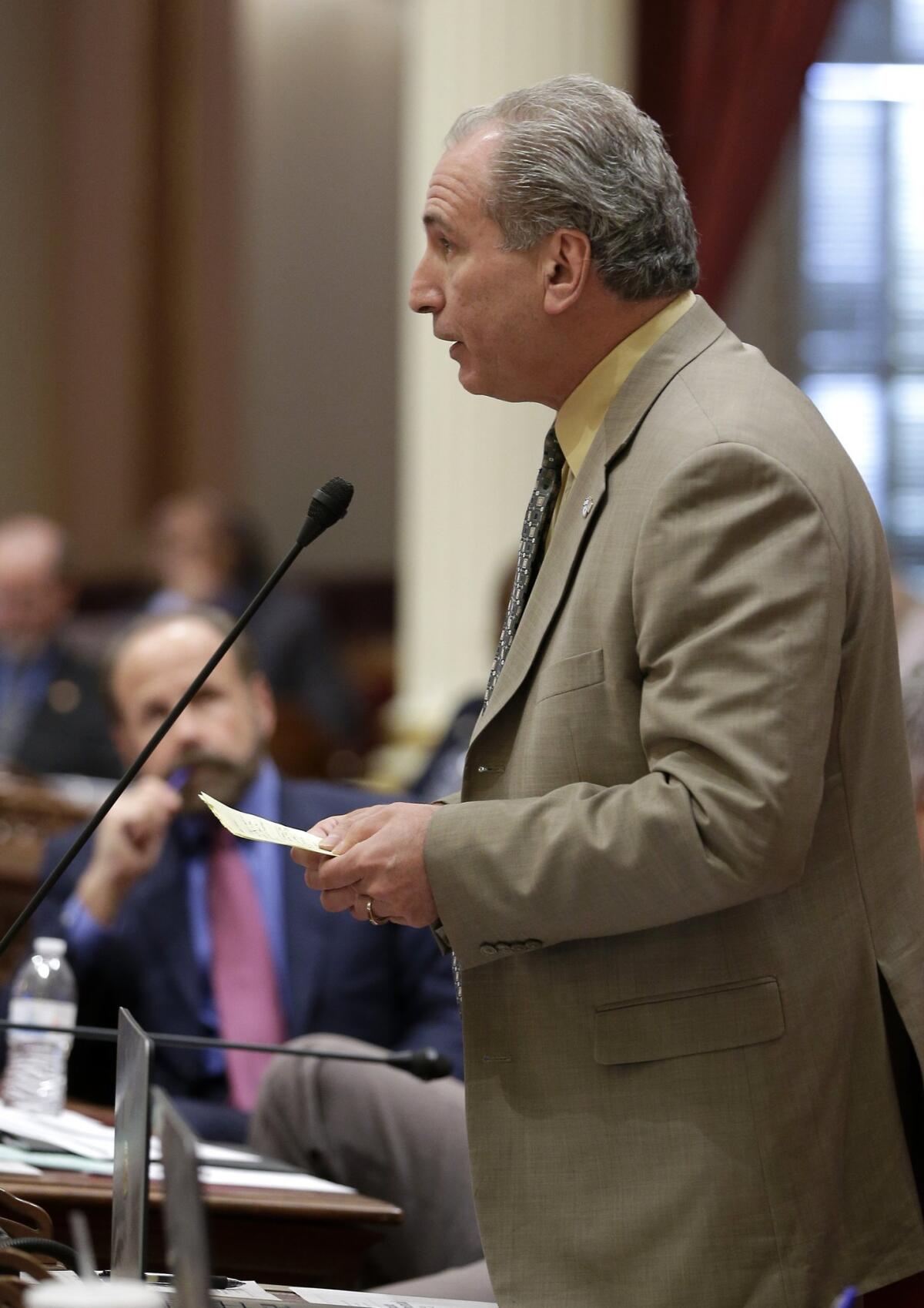Assembly panel approves resolution condemning anti-Semitism

State Sen. Jeff Stone (R-Temecula) speaking at the Capitol this month. Stone’s resolution condeming anti-Semitism on California college campuses was approved by an Assembly panel on Tuesday.
- Share via
Reporting from Sacramento — A state Assembly committee on Tuesday approved a resolution condemning anti-Semitism on California college campuses, a measure introduced after the defacement of a Jewish fraternity at UC Davis with Nazi swastikas in January and other acts targeting Jewish students.
The Assembly’s Higher Education Committee voted 8-0 in favor of the resolution, which was approved by the state Senate in May. The resolution now will go to the full Assembly for a vote.
“We have seen on too many campuses throughout the state of California the surge of hatred, bigotry and specifically, anti-Semitism in patterns that we haven’t seen in decades,” said former Assembly Speaker John Pérez (D-Los Angeles), a University of California regent.
The measure urges each campus in the UC system to adopt a similar resolution condemning all forms of anti-Semitism and racism.
Earlier this year, a Jewish student at UCLA who was a candidate for the student judicial panel, a board that examines ethics issues, was asked whether her being Jewish might present a conflict of interest on matters that came before the panel. Last year, the panel examined complaints from pro-Palestinian activists about whether two students violated rules by accepting free trips to Israel.
After an uproar, the student government at UCLA unanimously passed a resolution that condemned all forms of anti-Semitism.
A group of college students and civil rights activists testified in opposition to the resolution. They said the measure conflated anti-Semitism with criticism of the state of Israel and, as such, could limit free speech.
“Honestly, one of the biggest reasons that I’m here is because this resolution threatens my ability as a graduate student instructor, and the abilities of fellow student workers in the classroom, by limiting what we can say in the classroom in regards to Israel and Palestine,” said David McCleary, a graduate student at UC Berkeley, before the hearing.
McCleary said the main problem with the resolution is that it refers to the U.S. Department of State’s definition of anti-Semitism. While not quoted in the text of the resolution itself, this definition states that anti-Semitism can manifest itself in the demonization of Israel or in the application of a double standard when criticizing Israel compared with other countries.
Sen. Jeff Stone (R-Temecula), who authored the bill, said the resolution does not restrict academic discourse. He cited an amendment to the resolution, which states that it is not intended to diminish the free speech rights of anyone.
“There are those that here today that want to embellish this resolution, inferring that if somebody believes in a Palestinian state, a two-state solution, they are in fact anti-Semitic,” Stone said. “If you look at this resolution, I challenge any of the opponents to find the word Israel in the resolution.”
More to Read
Sign up for Essential California
The most important California stories and recommendations in your inbox every morning.
You may occasionally receive promotional content from the Los Angeles Times.













